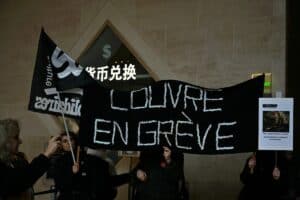Workers had taken to the streets accusing the SABS of changing their terms and conditions of employment without consulting the union.

The South African Bureau of Standards (SABS) strike by the National Education, Health and Allied Workers Union (Nehawu) is over after Nehawu reached an agreement with the SABS on Friday after a two-week protracted strike.
Workers took to the streets accusing the SABS of changing their terms and conditions of employment without consulting the union.
They also accused SABS of implementing a new payment structure that saw many benefits such as a housing allowance, medical aid and 13th cheque being reversed.
Some of the workers who had been employed at the department for over 30 years told The Citizen they were demoted, had their benefits reversed and had reapplied for their positions.
ALSO READ: ‘Buffoon, moron’: Nehawu blasts ANC KZN’s Bheki Mtolo
Agreement reached
Nehawu national spokesperson Lwazi Nkolonzi said the parties agreed on an annual salary increase on a sliding scale of 5.8% to 4%.
This will be effective from 1 April. “Parties agreed that employees will be eligible for a once-off gratuitous payment of R25 000 and a once-off gratuitous payment of R5 000 for the absorbed interns as of 1 April, 2024. “The once-off gratuitous payment shall be paid by 31 August,” he said.
Other agreements included splitting the salary scale and an increase to the housing allowance from R1 400 to R1 500 for employees who enjoyed this benefit.
Nkolonzi said other issues such as the 13th cheque the short-term incentive plan and the review of the salary package (benefits) for the absorbed interns would be resolved by month-end.
“Parties also agreed that there will be no victimisation of the employees for exercising their rights to participate in the strike. Following this agreement, Nehawu has ended the strike action,” he said.
Economist Dawie Roodt said striking for salary increases was sadly part of South African culture.
“It has to change, we have a culture of conflict and war. We line up people and put them up against each other to see who will win,” he said. Roodt said sadly something was always lost in the cracks.
“South Africa was immature in labour laws and relations,” he said. Roodt also said workers went on strike for salary increases because they could not keep up with the high living costs and inflation.
“Another problem in the country was ideological clashes, with far-left social ideals versus a business world that can’t be left,” he said. SABS had not commented at the time of going to press.






